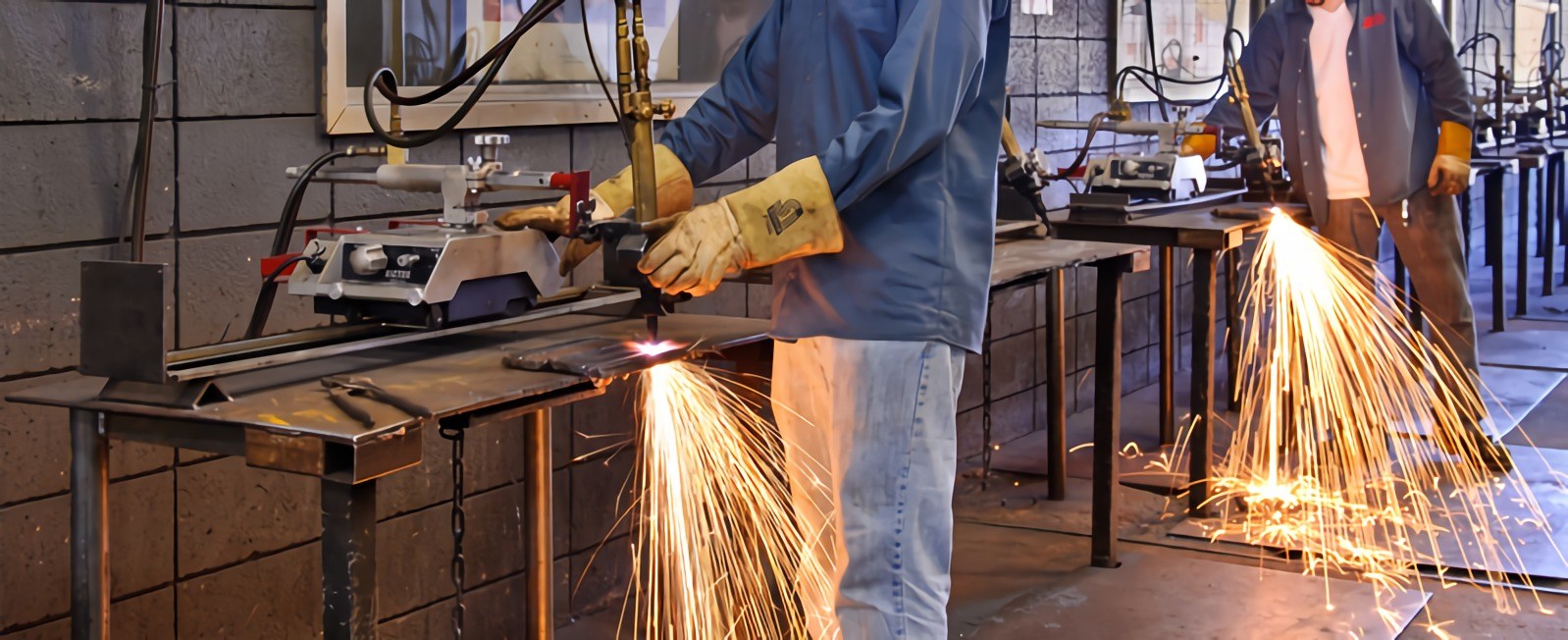TWS is a Great Training Option for Everyone
Learn more about how we can prepare you to advance your career.
Pipefitters are responsible for laying, fabricating, joining, and maintaining the pipe used in systems to
transport water, steam, chemicals, fuel, lubricants, and more. Pipefitters generally share overlapping
skills with more specialized careers, like steamfitters, plumbers, and boilermakers. For well-trained
pipefitters, this gives individuals a number of career paths to choose from.
Basic Construction Skills
Any career in the skilled trades will have to start with a solid foundation in basic constructions skills,
including: blueprint reading, applied mathematics, an introduction to tools, safety procedures, and
more. These skills ensure that pipefitters will be able to communicate professionally with other
contractors and tradesmen as they work together to complete projects.
Pipe Fabrication & Pipe Bending
Pipefitters will often have to create custom solutions for piping or plumbing issues. When a section of
pipe has to be replaced, pipefitters may have to shape the replacement part to fit into the application.
Fabrication may involve bending pipe, threading, and grinding to effectively join the new pipe into the
system.
Welding for Pipefitters
Pipefitters rely mainly on just a couple welding techniques for connecting pipes. One is a socket weld,
which fuses pipes into recessed socket fittings so that high-pressure systems will not fail at the
connections. The technique used in a socket weld is called a fillet weld, and it is applied to smallerdiameter
pipes, especially when connecting pipes of two different diameters. The weld for larger diameter
pipes is called a butt weld. Instead of fitting one pipe into the other, the edges of each pipe are
beveled so that they form a “V” when laid out edge-to-edge. The welder then essentially fills in the “V”
with the weld.
Have You Considered a Career in the Skilled Trades?
Fill out the form to recieve a no obligation info packet.
Pipe Installation & Shoring Techniques
Pipefitters have to be able to install pipe in a number of different settings. For pipeline workers, this
means they will have to be able to install pipe both above and below ground with full knowledge of the
rigging equipment involved. To support heavy pipelines and pipe systems, they will also have to learn
different shoring systems, such as hydraulic shoring, trench shoring, raking, and more.
To learn more about the skills pipefitters need on the job and for information about pipefitter training,
contact Tulsa Welding School. With the Pipefitting training program available from the Jacksonville campus and Houston campus, pipefitter training puts students in the middle of the oil and gas industry where there are
many opportunities for professional pipefitters to put their skills to use.
TWS.edu/pipefitting-course-listing/
This blog has been labeled as archived as it may no longer contain the most up-to-date data. For a list of all current blog posts, please visit our blog homepage at https://www.tws.edu/blog/







